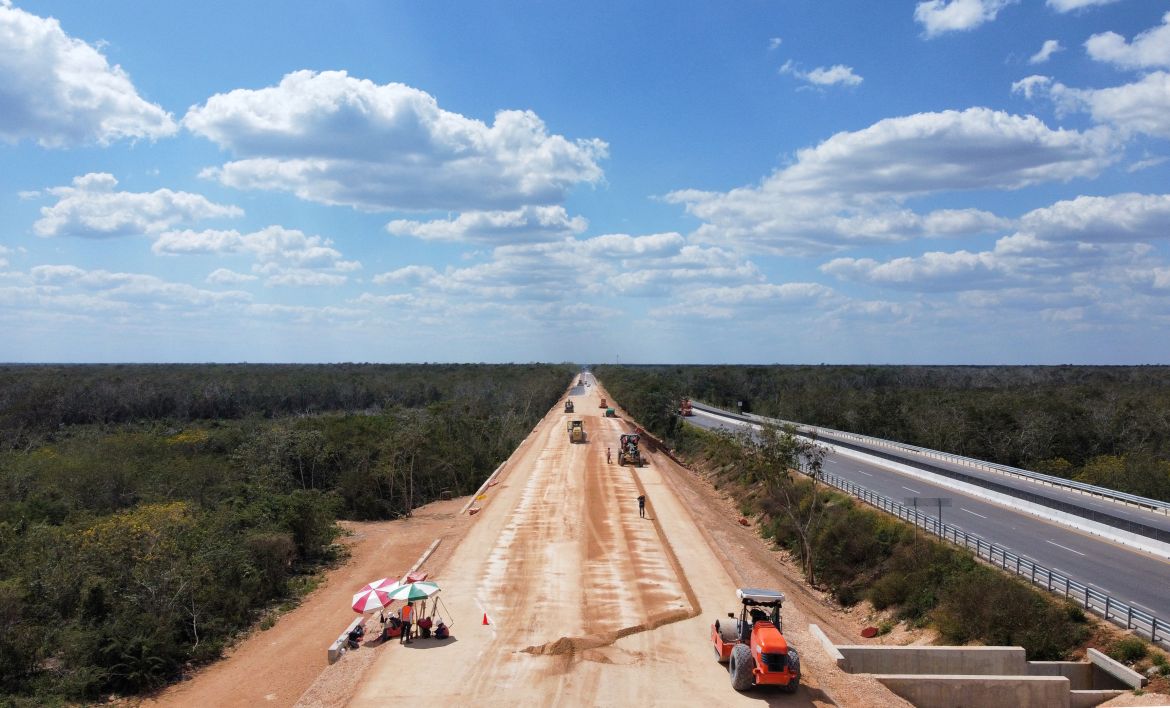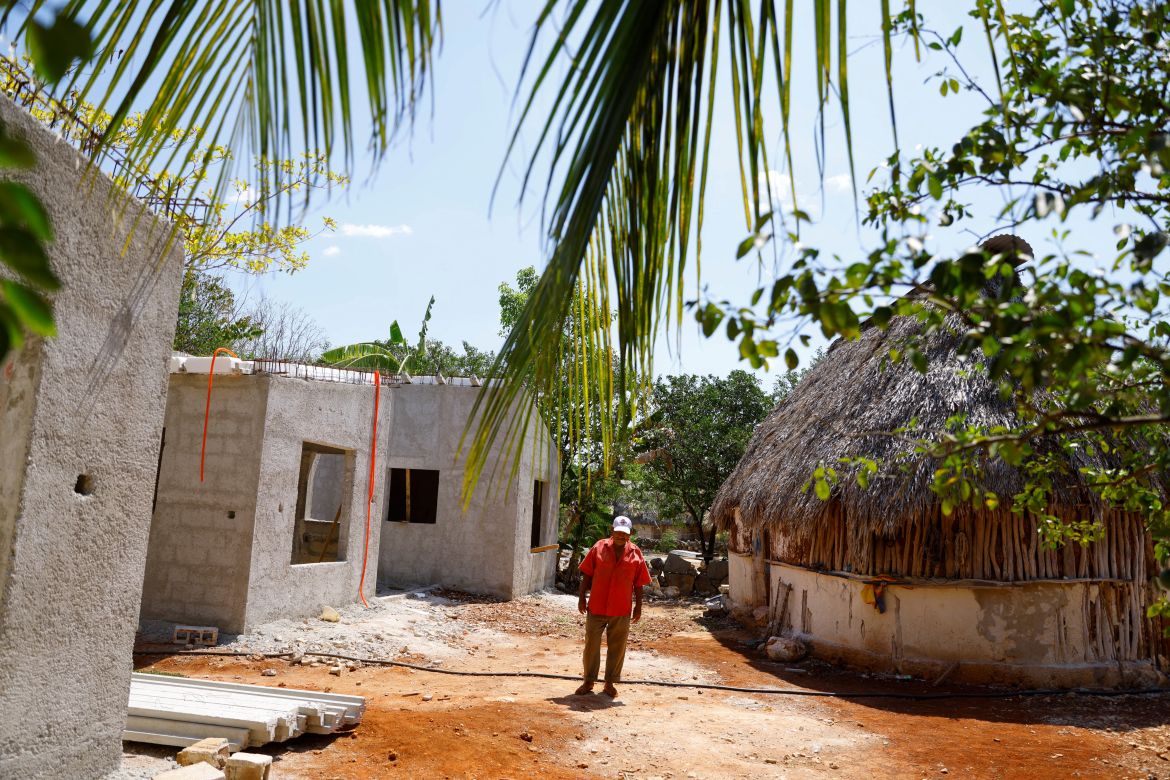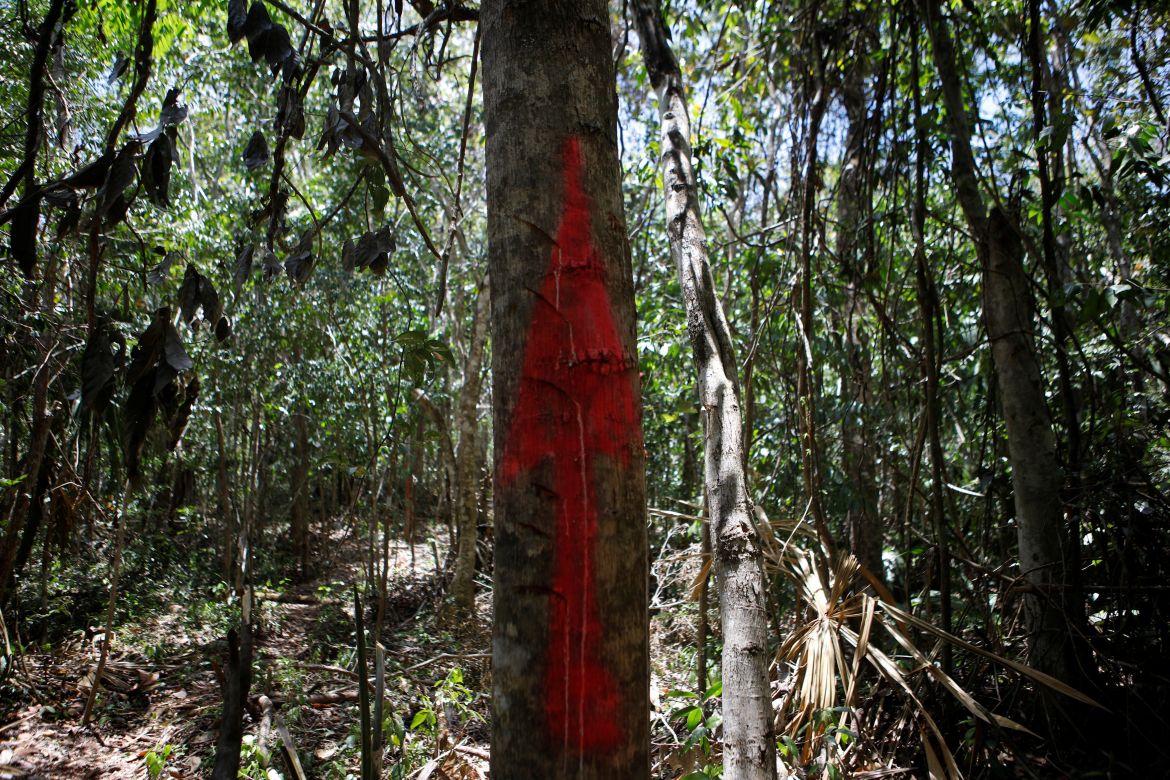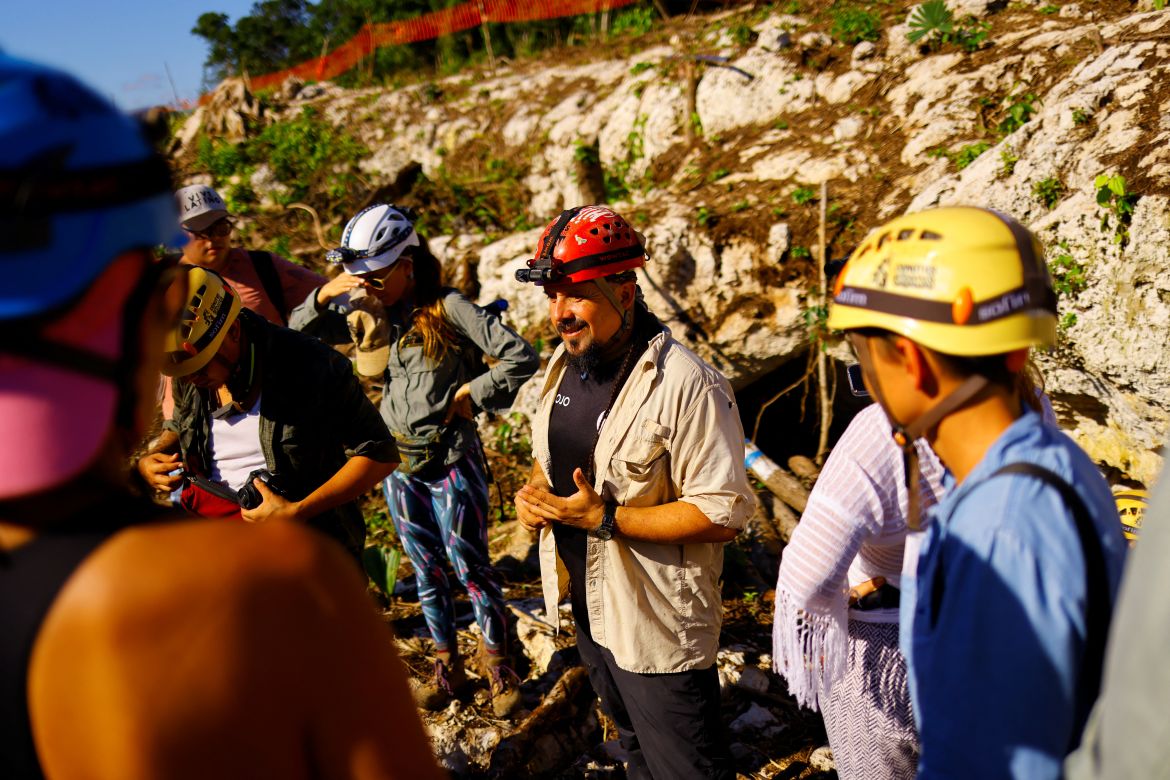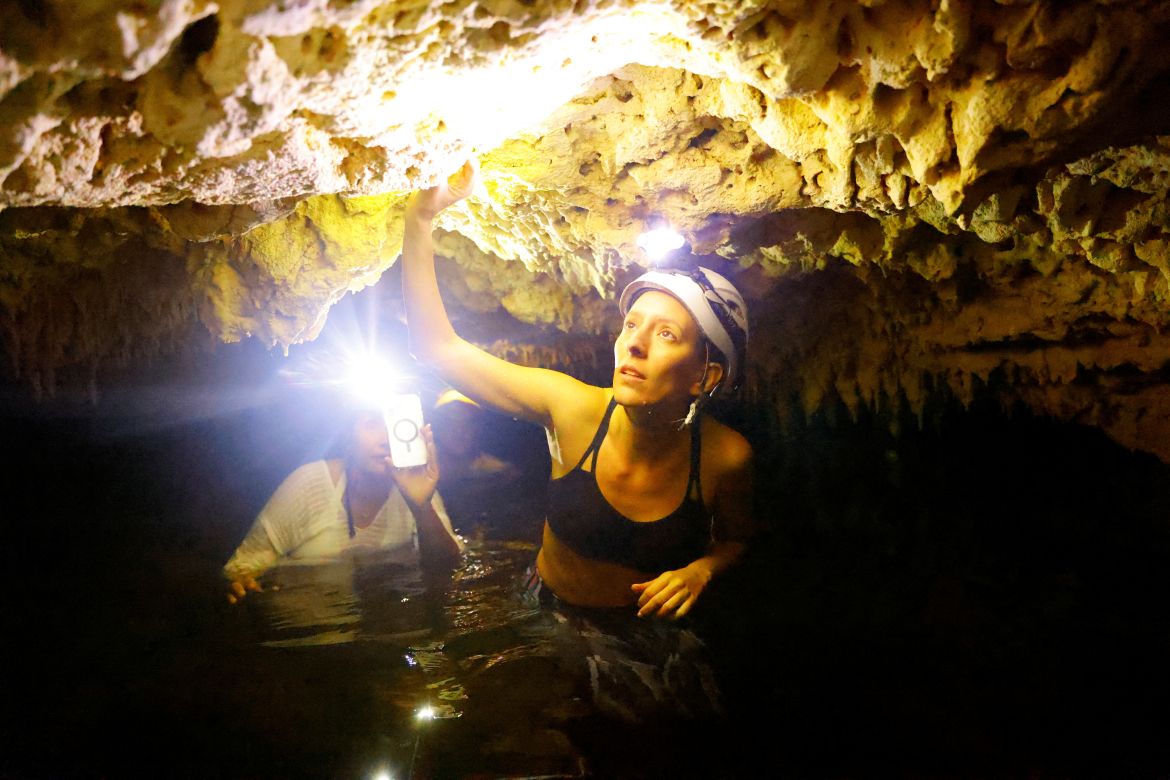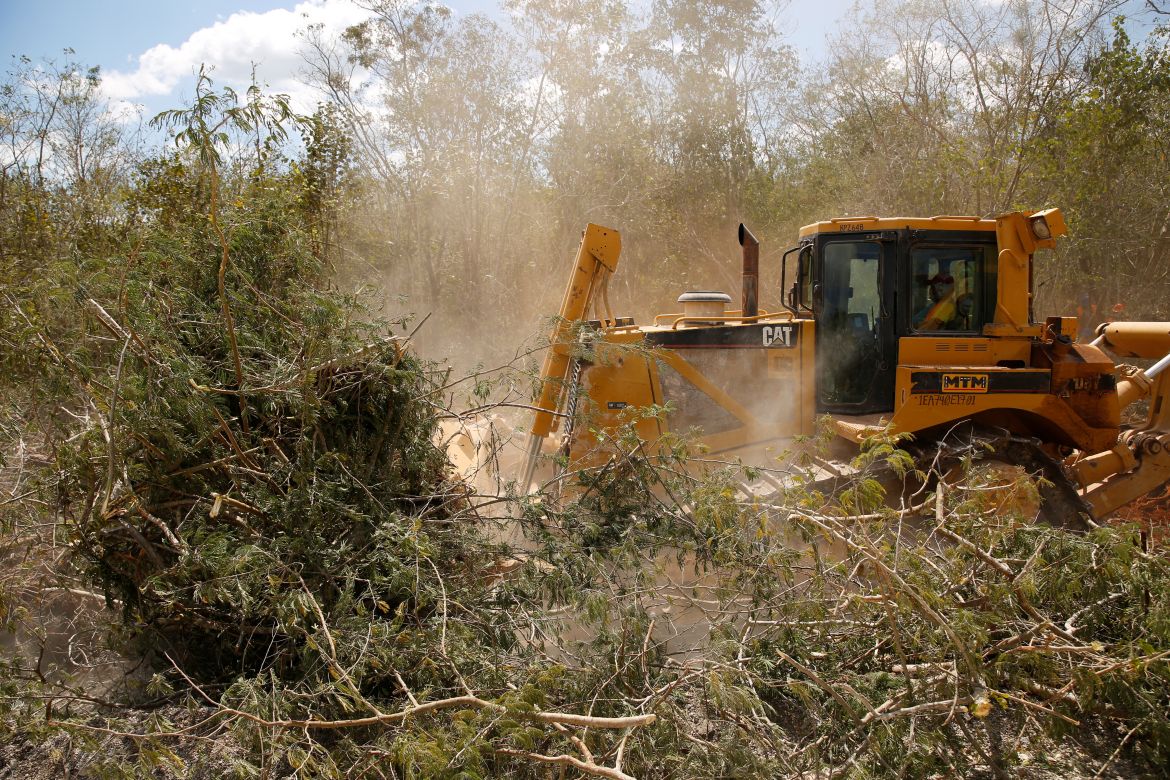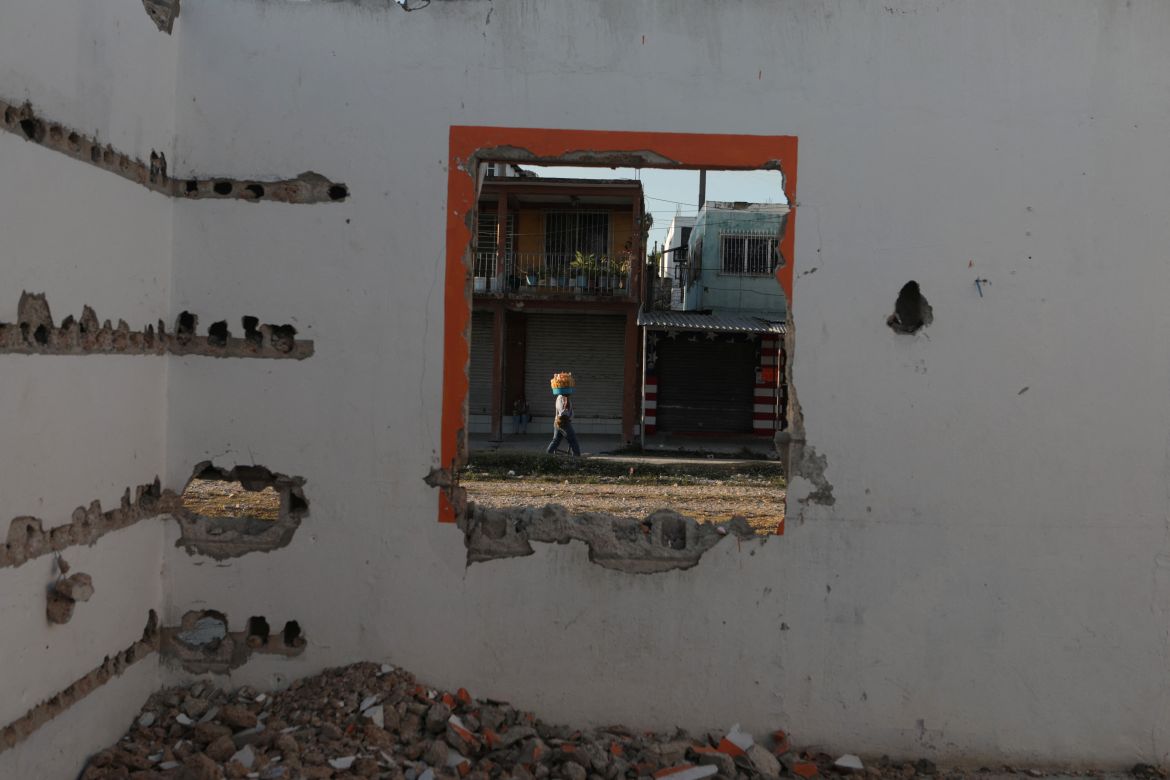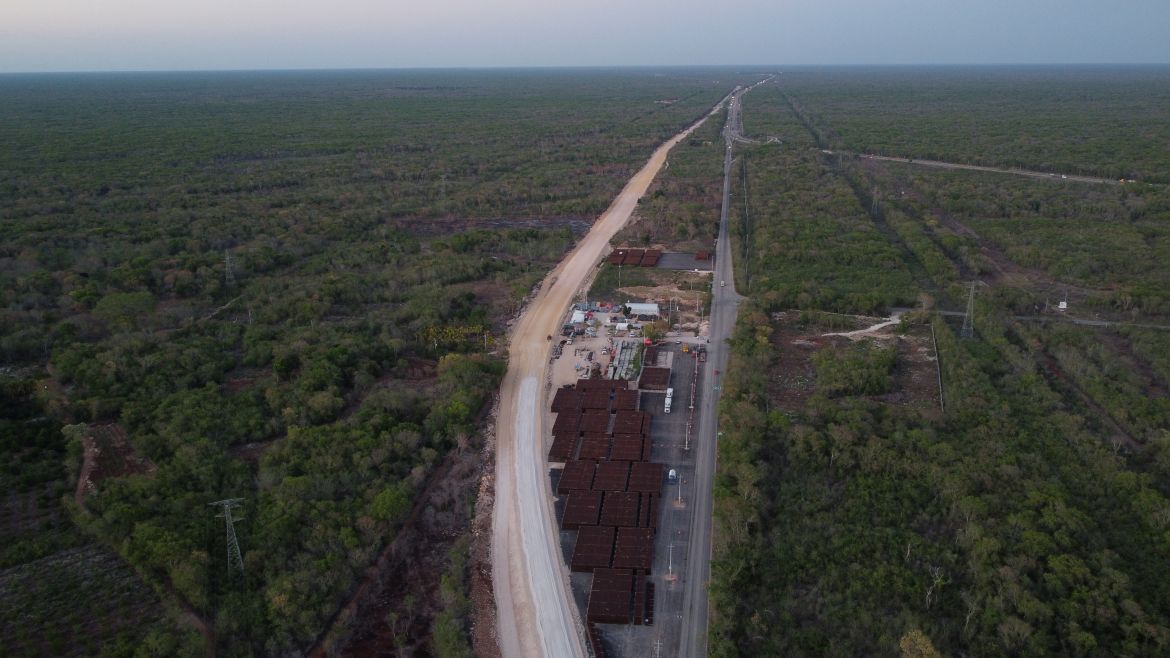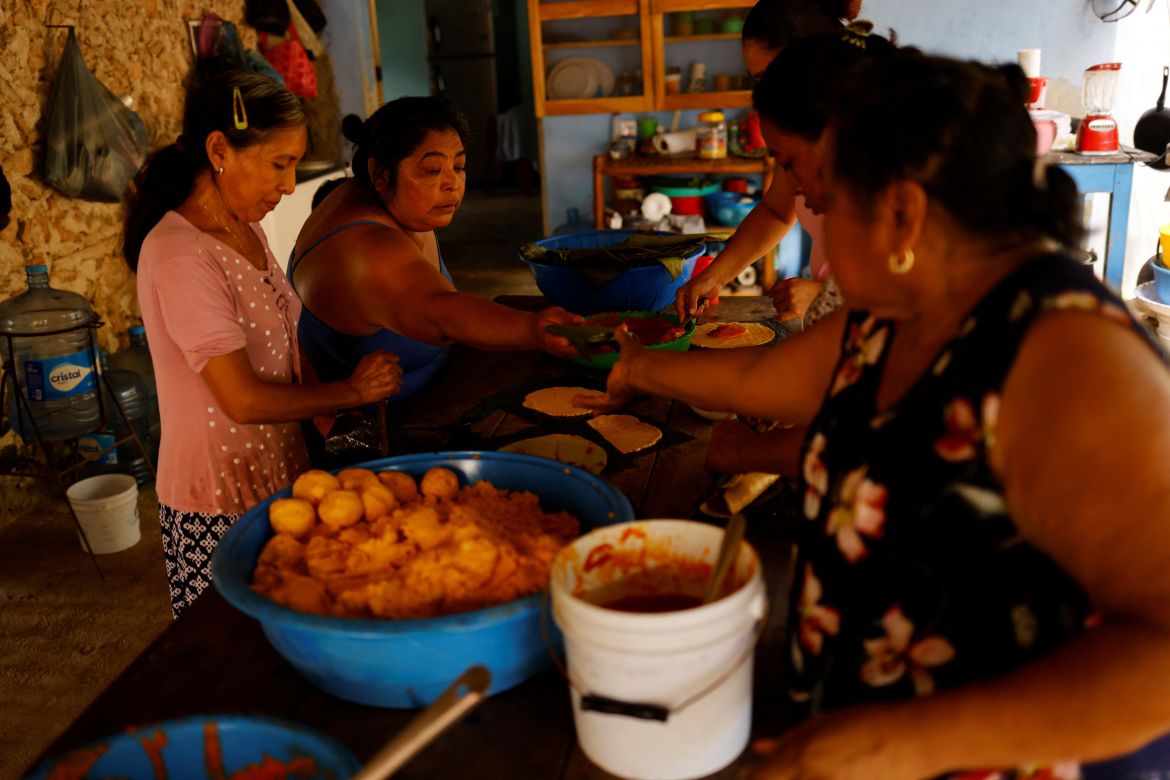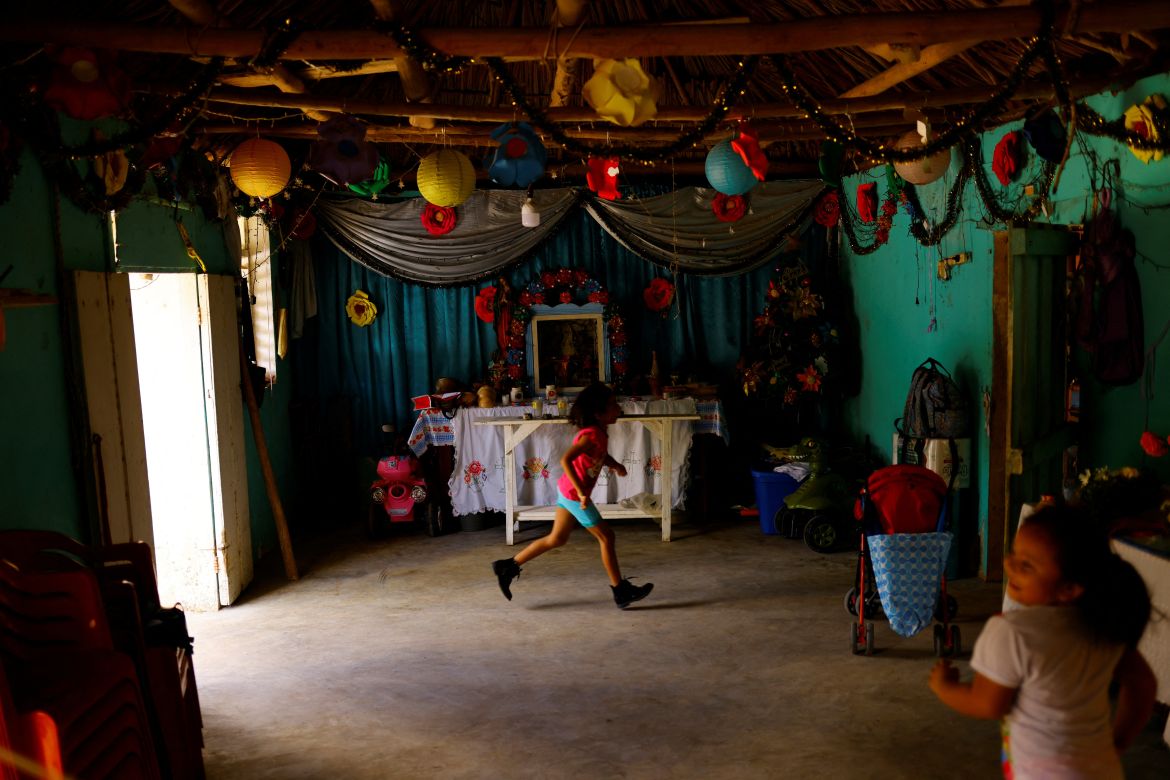In Pictures
Photos: Experts warn of ecological threat from Mayan Train route
Mexico hopes the railway will boost the economy and reduce poverty, despite concerns about its environmental impact.
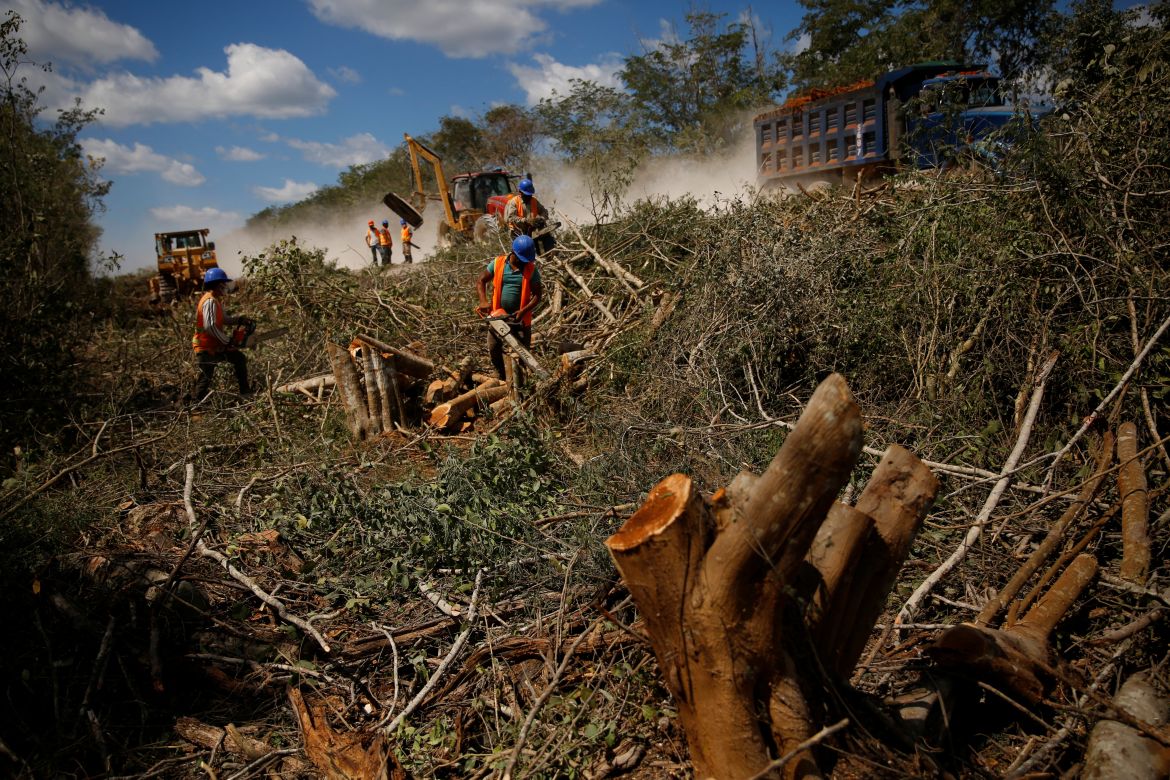
Parts of Mexico’s remote southern jungles have barely changed since the time of the ancient Maya.
A railway championed by Mexican President Andres Manuel Lopez Obrador may be about to change that, though. The new line his government is building — known as the Tren Maya or the Mayan Train — will bring modern connectivity to areas that have been deprived of significant economic benefits for generations.
But scientists and environmental activists have warned that the railway and its hasty construction will critically endanger pristine wilderness and ancient cave systems beneath the jungle floor.
The railway “is splitting the jungle in half”, said Ismael Lara, a guide who takes tourists to a cave that shelters millions of bats near the Calakmul Biosphere Reserve. Lara feared that the train, due to pass close by, will disrupt wildlife routes and attract development to fragile ecosystems.
The 1,470km (910 miles) of rail are set to carry diesel and electric trains through the Yucatan Peninsula and connect Mexico’s top tourist destination Cancun to the ancient Mayan temples of Chichen Itza and Palenque. The route will pass above a system of thousands of subterranean caves carved out from the region’s soft limestone bedrock by water across millions of years.
Crystalline pools, known as “cenotes”, punctuate the Yucatan Peninsula, where the limestone surface has fallen in to expose the groundwater. The world’s longest known underground river passes through the caves, which have also been the site of discoveries such as ancient human fossils and Maya artefacts. One canoe recovered in the caves is estimated to be more than 1,000 years old.
The railway has deeply divided Mexicans. Mexico’s National Fund for Tourism Development (FONATUR) has said the railway will lift more than a million people out of poverty and could create up to 715,000 new jobs by 2030.
But scientists and activists have accused the government of cutting corners in its environmental risk assessments in a bid to complete the railway while Lopez Obrador is still in office.
In December, United Nations experts warned the railway’s status as a national security project allowed the government to side-step the usual environmental safeguards. They called on the government to protect the environment in line with global standards.
